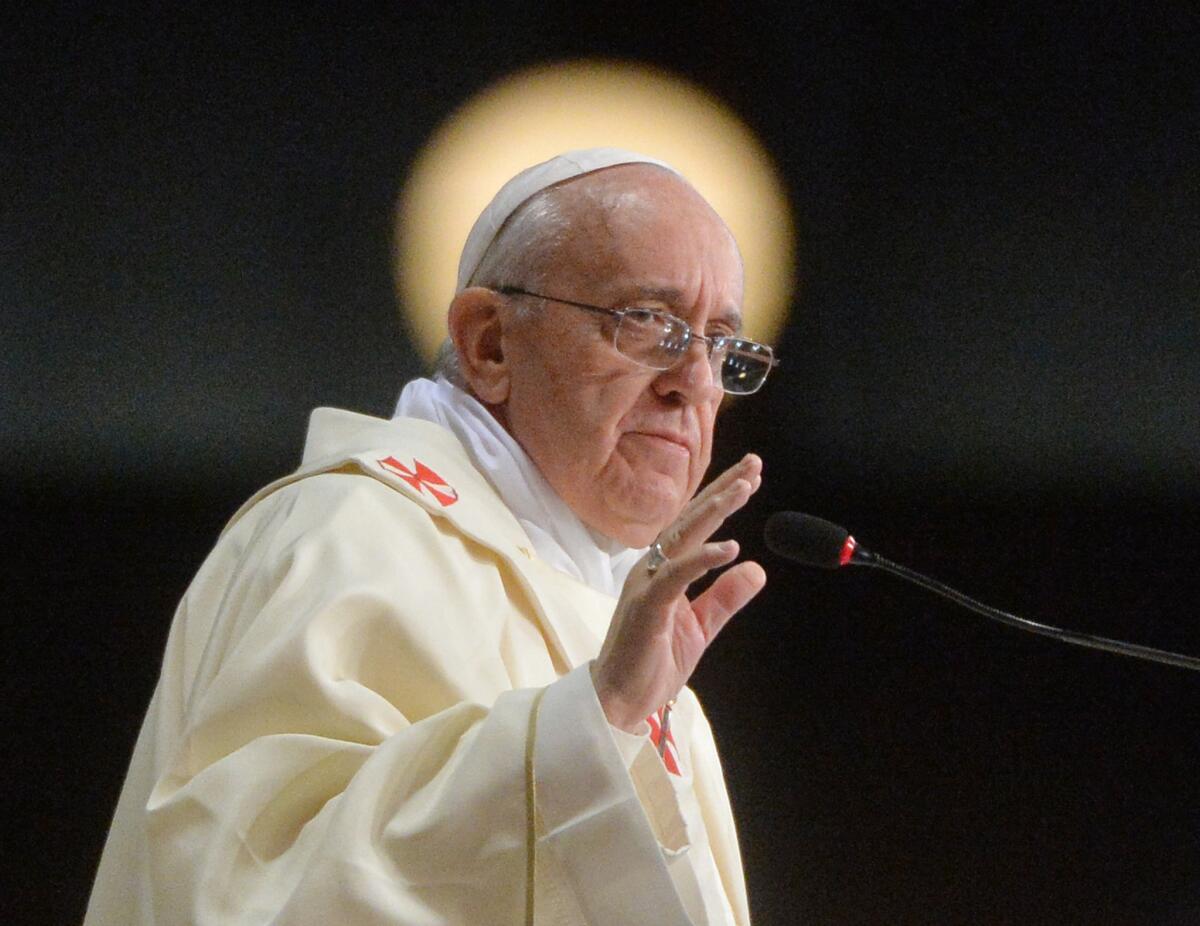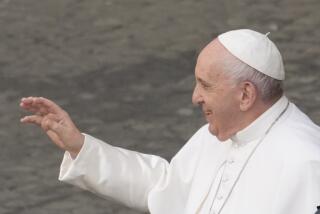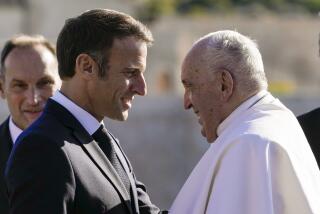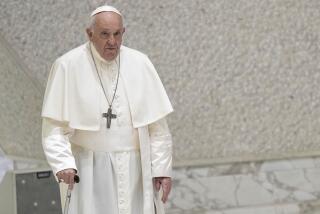Pope Francis urges social change in Brazil -- without violence

RIO DE JANEIRO--Pope Francis on Saturday seemed to endorse Brazilian demonstrators who have filled the streets here in recent weeks, urging government leaders to work to redress severe social inequities that cripple society. But he also told young protesters to steer away from violence and toward “dialogue, dialogue, dialogue.”
“The outcry, the call for justice, continues to be heard even today,” the pope told a gathering of senior Brazilian officials in Rio’s ornate, domed Municipal Theater.
Leadership and responsibility mean finding “the way to go to the heart of the evils of a society and to overcome them, also with the boldness of courageous and free actions,” Francis said.
PHOTOS: Pope Francis visits Brazil
His message to members of Brazil’s elite leadership repeated themes of social justice and of reaching out to the poor, which have been the hallmark of his weeklong pilgrimage to the world’s largest Roman Catholic country.
But, he suggested, sympathy for their causes did not give demonstrators carte blanche for how to go about their struggle.
“Between selfish indifference and violent protest there is always another possible option: that of dialogue,” the pope said. “Dialogue between generations, dialogue with the people, the capacity to give and receive, while remaining open to the truth. A country grows when constructive dialogue occurs.”
He chastised the “interplay of vested interests” that hold back democracy, an allusion to the old-style, deeply entrenched economic powers that continue to dominate Brazil, and much of Latin America, sometimes from behind the scenes.
“When leaders in various fields ask me for advice, my response is always the same: dialogue, dialogue, dialogue,” he said.
The pope was beaming as he left the theater, surrounded by little girls who gave him flowers and an indigenous tribesman who offered him his feathered headdress, which Francis briefly donned and mugged for the cameras.
He gave another boost to disaffected youth during Friday night’s Stations of the Cross, the symbolic reenactment of the Crucifixion of Christ -- held here on the wild Copacabana beach. The show was part Las Vegas, part Catholic avant-garde.
He said Jesus’ journey to his death on the cross showed his determination to assume the burdens and sufferings of victims of violence, hunger and persecutions based on skin color.
“Jesus is united with so many young people who have lost faith in political institutions, because they see in them only selfishness and corruption,” Francis said. “He unites himself with those young people who have lost faith in the church, or even in God because of the counter-witness of Christians and ministers of the Gospel.”
Some analysts interpreted the last reference to the victims of clergy sex abuse.
Francis, who had been speaking primarily in Portuguese in public appearances since arriving in Rio de Janeiro, switched to more Spanish on Saturday. He said it was to better express what was in his heart, but it may also reflect weariness in what has been an inordinately grueling schedule for the 76-year-old pontiff, history’s first from the Americas.
ALSO:
Snowden welcome in Venezuela? Not so much
Dozens killed as Egyptian police break up pro-Morsi rally
Sixty years of Korean armistice: One war, two histories, no peace
More to Read
Sign up for Essential California
The most important California stories and recommendations in your inbox every morning.
You may occasionally receive promotional content from the Los Angeles Times.











